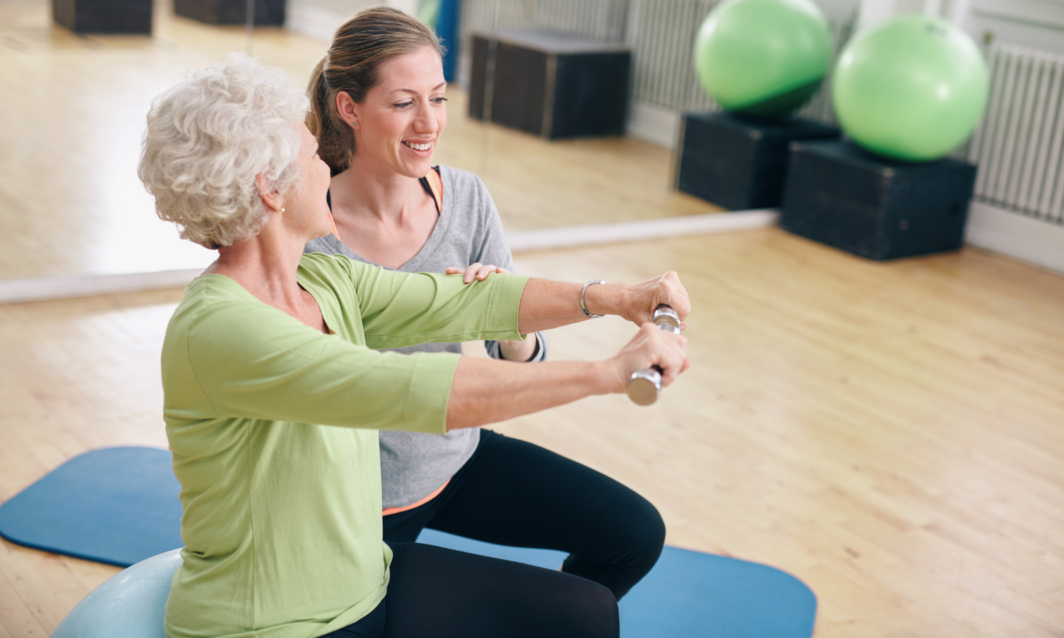Fri, 20 September 2024 03:39:33am
Related Tags: health in middle age, fitness after 40, healthy aging tips, wellness in 50s, expert health advice, strength training for middle age, muscle health after 40, exercise in 50s
How to Stay Fit and Healthy in Your 40s and 50s: Expert Advice for Middle Age

How to Stay Fit and Healthy in Your 40s and 50s: Expert Advice for Middle Age
As you transition into your 40s and 50s, maintaining health and fitness becomes more critical than ever. Your body undergoes changes that affect metabolism, muscle mass, and overall energy levels. However, staying fit and healthy is absolutely achievable with the right strategies in place.
We’ll cover expert tips and advice on how to maintain physical and mental well-being as you navigate middle age.
1. Prioritize Strength Training for Muscle Health
As you age, your body naturally loses muscle mass, a process known as sarcopenia. According to health experts, people in their 40s and 50s can lose up to 1% of muscle mass each year. Incorporating strength training into your routine is essential to counteract this loss.
Expert Tip: Aim for strength training exercises 2-3 times per week. Focus on exercises that target large muscle groups such as squats, lunges, and push-ups to build muscle and improve bone density.
Trending: strength training for middle age, muscle health after 40, exercise in 50s
2. Incorporate Cardiovascular Exercises for Heart Health
Maintaining cardiovascular health is a priority as heart disease risks increase with age. Regular cardio workouts, such as brisk walking, swimming, or cycling, can help keep your heart strong and improve endurance.
Focus: best cardio exercises for people in their 40s, low-impact exercises for middle-aged adults
Expert Tip: Aim for at least 150 minutes of moderate-intensity cardio per week. Consider varying your activities to keep it fun and engaging, and opt for joint-friendly exercises if necessary, such as swimming or using an elliptical machine.
3. Focus on Flexibility and Mobility
In your 40s and 50s, joints and muscles become less flexible, making it essential to prioritize stretching and mobility exercises. Increased flexibility can help prevent injuries and improve your overall movement quality.
Expert Advice: Incorporate yoga or Pilates into your weekly routine to enhance flexibility and mobility. Not only do these activities improve physical well-being, but they also reduce stress and promote mental clarity.
Trending: yoga for middle-aged adults, stretching exercises after 50
4. Optimize Your Diet with Whole Foods
Diet plays a significant role in your overall health, especially in middle age. Focusing on whole foods, including lean proteins, fruits, vegetables, and healthy fats, can help manage weight, reduce inflammation, and keep your metabolism active.
Expert Tip: Consider incorporating more anti-inflammatory foods like leafy greens, fatty fish, and nuts into your diet. As metabolism slows down, portion control becomes critical, so be mindful of calorie intake while ensuring nutritional needs are met.
Focus: best diet for middle-aged adults, anti-inflammatory foods for people in their 50s
5. Prioritize Sleep for Recovery and Overall Health
Getting adequate sleep is crucial for people in their 40s and 50s, as it helps with recovery, hormone balance, and cognitive function. Lack of sleep can lead to a weakened immune system and increase the risk of chronic diseases such as diabetes and heart disease.
Expert Tip: Aim for 7-9 hours of sleep per night. Develop a consistent sleep routine, limit screen time before bed, and create a calming bedtime environment to ensure quality rest.
Trending: sleep and recovery in middle age, how to improve sleep after 40

6. Manage Stress with Mindfulness and Relaxation Techniques
Middle age often brings new responsibilities, such as career demands, caring for aging parents, and financial stress. Prolonged stress can negatively affect physical and mental health, increasing the risk of anxiety, depression, and heart disease.
Expert Advice: Practice mindfulness techniques such as meditation, deep breathing exercises, or journaling to reduce stress. Regular relaxation helps prevent the long-term effects of chronic stress and improves mental well-being.
Focus: mindfulness for middle-aged adults, stress management techniques for people in their 40s and 50s
7. Stay Hydrated and Limit Alcohol
Dehydration becomes more common as we age, making it essential to drink plenty of water throughout the day. Proper hydration supports digestion, joint health, and energy levels. Limiting alcohol consumption can also significantly benefit overall health, as excessive drinking can increase the risk of high blood pressure and liver issues.
Expert Tip: Aim to drink at least 8-10 glasses of water daily. If you consume alcohol, do so in moderation—no more than one drink per day for women and two for men.
Trending: hydration tips for middle age, alcohol consumption guidelines for people over 40
8. Regular Health Check-Ups and Screenings
Preventive health care becomes even more important in middle age. Regular check-ups and health screenings can detect potential issues early and improve your chances of effective treatment.
Expert Tip: Stay up-to-date on screenings for blood pressure, cholesterol, cancer, and other conditions that may become more common after 40. Discuss with your doctor the specific screenings that are relevant for your health profile.
Focus: health check-ups for middle-aged adults, essential medical screenings for people in their 50s
Conclusion: Small Changes Make a Big Impact
Staying fit and healthy in your 40s and 50s doesn’t have to be complicated. By making small, manageable changes—such as incorporating regular exercise, prioritizing flexibility, eating a balanced diet, and managing stress—you can significantly improve your health and well-being. Regular check-ups and preventive care will also go a long way in ensuring you stay on track for a healthy middle age and beyond.
Key Takeaways:
- Strength training helps combat muscle loss in middle age.
- Cardio workouts are essential for maintaining heart health.
- Stretching and flexibility exercises prevent injuries and improve movement.
- A balanced diet focused on whole foods supports metabolism and reduces inflammation.
- Proper sleep and stress management are key to overall wellness.


